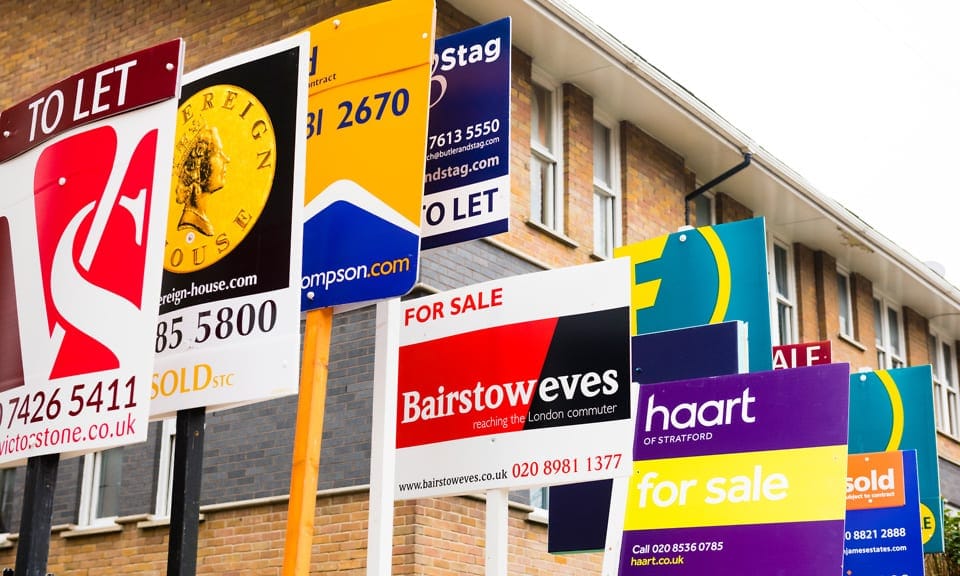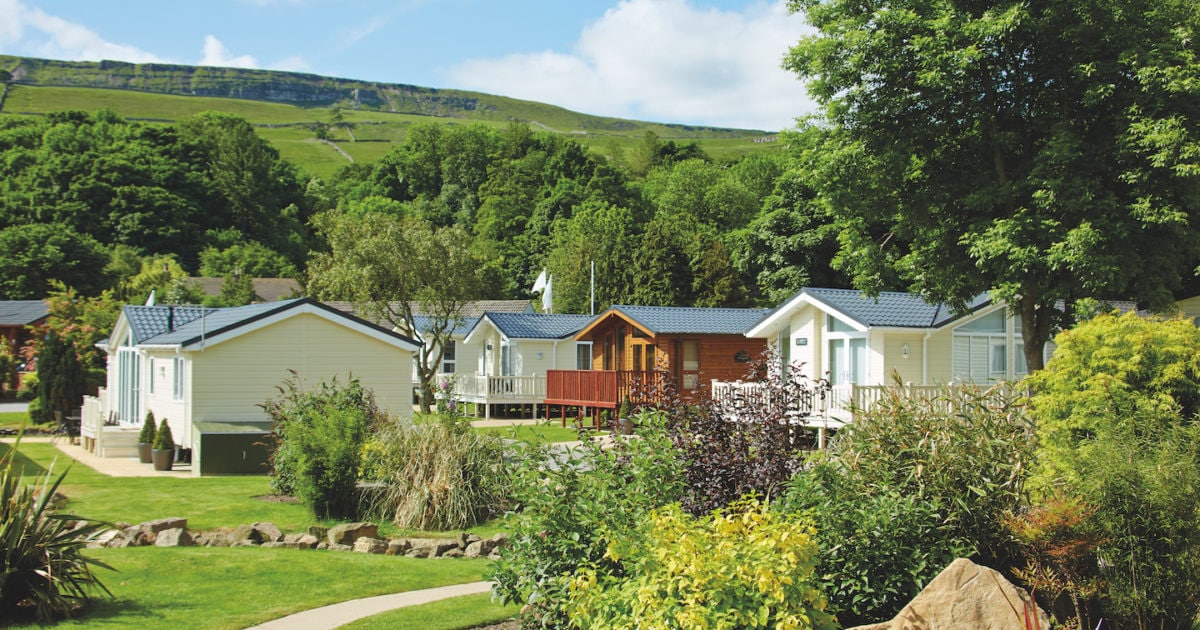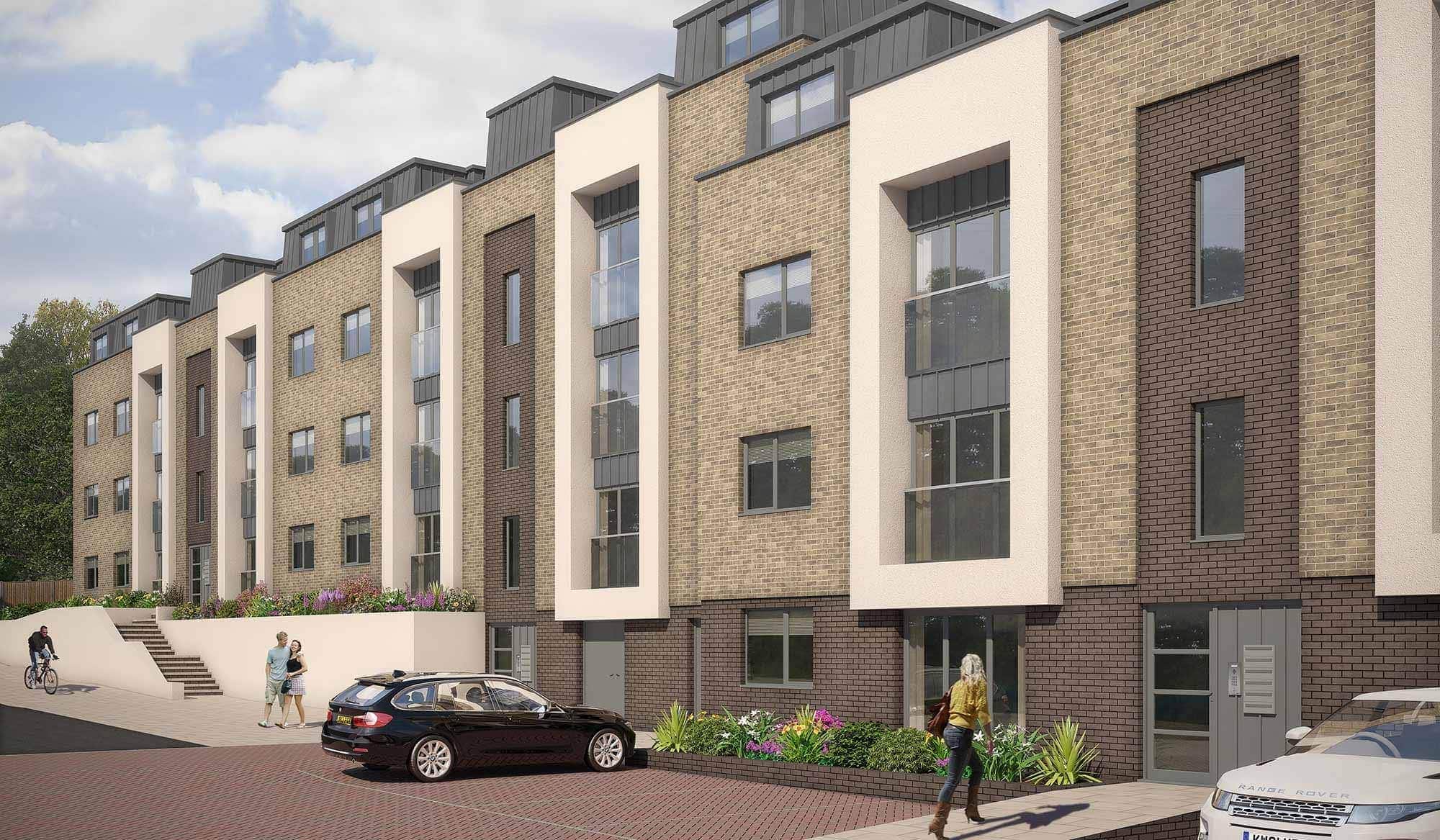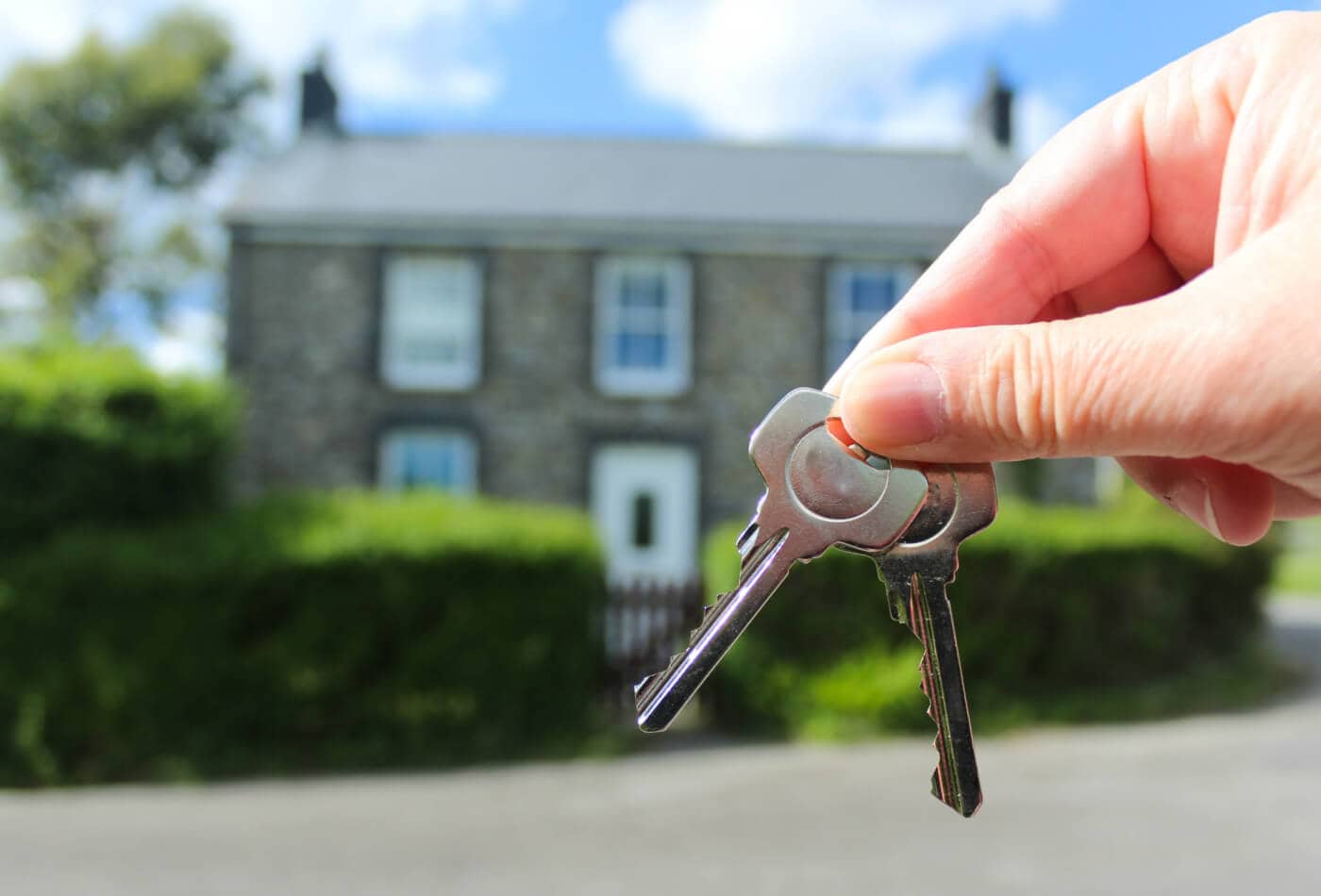How Do 95% Mortgages Work?
The major banks have launched their government-backed 95% mortgages. As such, people across the UK can now purchase a home with only 5% deposits.
The Mortgage Guarantee scheme was launched last week, intended to return mortgage opportunities for buyers with a 5% deposit.
The government has backed the scheme, acting as an insurance policy to lenders offering 95% loans. This protects them against the uncertainty of house prices declining. As a result, mortgage lenders have the confidence to lend to buyers with just a 5% deposit.
Where Can I Find A 95% Mortgage?
The major banks have already begun offering their new 95% loan-to-value product, including Lloyds, NatWest, Barclays, Santander and HSBC.
5% deposit mortgages are back
The government-backed mortgage scheme has renewed confidence in lenders across the country. As a result, a number of lenders who are not using the guarantee scheme have also launched new mortgage products for buyers with a 5% deposit.

Although they are not taking part in the government scheme, they return to offering mortgages for those with a 5% deposit like they did pre-pandemic.
Accord Mortgages, Bank of Ireland, Skipton Building Society, Coventry Building Society, Aldermore Bank, and Buckinghamshire Building Society have already returned to 95% loans. Additionally, Leeds Building Society, Metro Bank, Atom Bank and The Cambridge Building Society have uncovered products.
Who benefits from 95% mortgages?
The new mortgage scheme could help many buyers who haven't been able to purchase a property with a 5% deposit. The new system widens the options for buyers who may have had only the Help to Buy equity loan scheme as an option, available only for new-build properties. This could also be a favourable opportunity for buyers who would put down a 10% deposit but can now choose to keep more money saved for any refurbishments the property needs or other costs.
Restricted Criteria For Borrowers
Lenders offering new 5% deposit mortgage products have approached with caution, adding restricted criteria for borrowers. Some lenders are also currently only providing 95% mortgages via intermediaries.
The criteria include reduced maximum borrowing and tighter credit score requirements. The interest rates are also higher than the current 10% deposit mortgages.
Other limitations may include:
- First-time buyers only
- Lending only on houses, not flats or new builds
- Capping at 4.49 times your income
- Five-year fixed rates only
Will this make homeownership affordable?
If you are a single buyer, the 5% deposit scheme may not be enough to help you purchase your first property. Analysis shows that homeownership remains unaffordable for many despite the 95% mortgage products.

Analysis: Single buyers in their thirties will still struggle to get on the property ladder under the new scheme.
Property analysis found that single people in their thirties, earning the average UK salary, will still be unable to buy a home in around half of all local authorities in England and Wales.
For example, a single woman aged 30 to 39 earns the average UK salary of £30,258. She would not afford a median-priced home from the cheapest band in more than half of local authority areas, even with a 95% mortgage. A single man in this demographic earns an average of £34,567 and would not afford a mortgage in 48% of local authorities in the UK.
UK Home Sales Hit Record High
-
UK property sales were recorded at a 16-year high.
-
Average UK house prices have increased by 8.6%.
-
Statistics evidence how the stamp duty holiday turbocharged the market.
About 180,690 transactions took place during March, according to official figures from HMRC. This was twice the number seen in March 2020 and the highest and the highest number recorded since HMRC began publishing the data in 2005.
Data from the Office for National Statistics (ONS) confirmed that the market frenzy has driven up house prices. ONS data showed the average home in the UK to be priced at £250,000 in February, a £20,000 rise on the same month of last year.
The average house price in the UK increased at an annual growth rate of 8.6% (until February). This is the steepest increase in the property market since October 2014.
Why Have House Prices Risen?
This increase comes at a time when many feared for the sake of the property market. Coronavirus lockdowns around the country caused limited viewings, closed agency doors, and forced lenders and solicitors to work from home. Despite the market freeze, the figures evidence the tremendous bounce back. As everyone held their breath, the stamp duty holiday flew in to support the market.
In March, buyers and sellers were in a rush to complete deals before the end of the stamp duty holiday. In England and Northern Ireland, the tax threshold temporarily increased to £500,000, giving buyers savings of up to £15,000. In Wales and Scotland, the bracket went up to £250,000.
Buyers shot at the opportunity to complete deals before the deadline, as reflected in the sales figures.
The pandemic also prompted a reconsideration about what people want from their homes for many Britons. As operating from home became the norm, many found themselves in properties that did not suit their work lives. Buyers who began searching for larger homes and gardens have helped drive the market and raise average house prices.
Stats & Figures
HMRC's figures note that transactions jumped by 49.6% over March. 399,060 sales were made in the first quarter of the year, making it the busiest quarter since spring 2006.
The ONS figures placed the average price of a home in the UK at £250,000 in February, increasing £20,000 on the same month of last year.
- In England, the average price rose by 8.7% over the year to £268,000.
- Wales saw an 8.4% increase to £180,000.
- In Scotland, prices gained by 8% to £162,000.
- In Northern Ireland by 5.3% to £148,000.
The north-west of England recorded the highest annual growth with an 11.9% rise, closely followed by the East Midlands and Yorkshire and the Humber. London marked the lowest development in England, at an increase of 4.6%.
ONS reported a 9.1% growth in the average price of detached homes. Flats and maisonettes rose by 6.7% over the same time.
What's Next For The Property Market?
The property data collected is evidence of how the stamp duty holiday turbocharged the market. Although the tax holiday has ended, the government-backed 95% mortgage scheme launched on Monday and could help more first-time buyers get on the property ladder.
As lockdown restrictions relax and more homes go on the market, some property experts believe that expanded choice and growing consumer confidence could prompt a second surge.
Government Cracks Down On Second-Home Owners Avoiding Council Tax
- Changes made to the tax treatment of holiday lets
- Crackdown on 60,000 self-catering properties in England are registered for business rates
- Other changes stated in the Government's Tax policies and consultations publication?
The Government will tighten the rules to regulate second-home owners who are falsely claiming tax breaks.
The treasury became concerned that some people are claiming to let out their second home while putting minimal effort into doing so. This allows people to receive tax breaks that they are not entitled to.
Some second-home owners in the UK have avoided council tax on the properties by saying that they are holiday lets. The current rules allow them to be charged business rates. Moreover, a large proportion of these properties qualify for Small Business Rate Relief. Therefore, if the property has a rateable value of less than £12,000, they are fully tax-exempt, allowing for significant savings.
New Regulations
The Government plans to toughen the rules with the new move laid out in the Government's Tax policies and consultations publication. People who state that they manage a holiday rental will be required to prove that the property is rented out for a minimum of 140 days per year.
How Relevant Is This Issue?
Government statistics show:
- 60,000 self-catering properties in England are registered for business rates.
- 96% of these premises have a rateable value of less than £12,000 - likely qualifying for Small Business Rates Relief.
It is unknown how many of these are private second homes and how many are honest holiday lets. The new regulations aim to combat this uncertainty.
How Will This Affect Second-Home Owners?
Second-home owners who have been getting business rates will be obliged to guarantee that it is rented out for at least 140 days per year. They must prove to be genuine holiday lets if they want to continue receiving the lucrative tax break. Otherwise, they will now be required to pay council tax on their property.
Other changes made in the Government's Tax policies and consultations publication
Regulating second-home owners falsely claiming tax breaks was the most notable move in the tax policy document, but the publication also identified many other property-related changes.
The Government published proposals to start a consultation in 2022 on creating an additional tax on the largest residential property developers. The Government's new reporting requirements also evidenced plans to simplify inheritance tax. The Tax policies and consultations publication also laid out steps towards making rules on land and property VAT exemptions clearer.
A Third of New Homeowners Say COVID Has Helped Them Get On The Property Ladder
According to new research by Yes Homebuyers, a third of homeowners say that coronavirus lockdown restrictions have helped them onto the property ladder.
The study shines a positive light on the financial hardships of lockdown. For a third of homebuyers, the lockdowns have been a helping hand in realizing their homeownership goals. Although we are all eager to return to normality, it is clear that the coronavirus restrictions also have helped Britons save up for property. The study found that 27% of recent homebuyers say the lockdown restrictions helped them save the money to buy a property.
Why has COVID helped homebuyers get on the property ladder?
During the national lockdowns in the UK, many have had little else to spend their money on. Working from home and a halt to social activities has allowed some people to save money over the course of this year. On average, Brits are saving £140 each week by staying home during the lockdown. There have also been further savings up for grabs with the government's stamp duty holiday. Some have benefited from the unfortunate circumstances in which we have all found ourselves by managing to get a foot on the property ladder.
The research shows that:
- 46% of those questioned in the survey identified the hugely reduced social expenses as a help in buying their property.
- 33% said working from home helped save on commuting costs
- 10% cited reduced family expenses
- 6% noted an inheritance due to bereavement
- 5% saved money on rent by moving in with their parents during lockdown
Matthew Cooper, founder and managing director of Yes Homebuyers, stated: "There's no-one on the planet who wouldn't like to erase the last year from history, and the lockdown has been hard for so many people for a whole variety of reasons... At the same time, there have been some great stories of resolve, survival and adaptation emerging across all areas of life. This is indicative of our nation and how we come together when times are tough."
Where Are The Best Areas For Holiday Lets In The UK?
- The Staycation boom boosts the holiday rental market.
- The UK's national parks offer the most popular holiday let locations.
- What are the best locations to invest in UK holiday lets?
The Staycation Boom
The rise in staycations as a result of the coronavirus has boosted the short-term rental market. The areas of the country which can boast beautiful scenery and outdoor activities will attract the most interest.
For these staycations, travellers are looking for nature-filled locations with properties to accommodate the whole family. The pet owners around the UK will also be looking to have their dogs come along on their holidays. As a result, holiday rentals become a far more practical option than hotels.
Where are the most popular areas for staycations?
The UK has 15 national parks across the country, which will be exceptionally popular in holiday times.
‘In the UK there are 15 members in the National Park family, which are protected areas because of their beautiful countryside, wildlife, and cultural heritage. People live and work in the National Parks and the farms, villages, and towns are protected along with the landscape and wildlife.’ – National Parks UK
- In England, there are 10 National Parks: The Broads, Dartmoor, Exmoor, the Lake District, the New Forest, Northumberland, the North York Moors, the Peak District, the South Downs, the Yorkshire Dales.
- Scotland has 2 National Parks: Cairngorms and Loch Lomond, the Trossachs.
- In Wales, there are 3 National Parks: the Brecon Beacons, Pembrokeshire Coast, Snowdonia.
In all of these areas, demand will likely exceed the supply for holiday rentals. As one of the UK's largest national parks, the Lake District will be an attractive option for domestic holidays and the nearby Yorkshire Dales.
Why are National Parks the best areas for holiday rentals?
For staycation holidays, travellers are looking for a property to enjoy a range of outdoor activities in the area. Hiking, cycling, rock climbing, and kayaking are among the adventures Brits are looking for. The UK's nationals parks have some of the best trails, cycle paths, and lakes.

National Parks in the UK welcome holiday-makers in the thousands annually and will only become more popular in the years to come.
Investing in UK holiday lets
Short-stay rentals have the potential to be more rewarding than long-term rentals, especially in the right location.
With so many incredible nature-filled locations in the UK, there is a wealth of opportunity for investment. As demand is sure to exceed supply during vacation times, a holiday rental property is likely to be successful on the short-term rental market.
Last-minute mini-breaks have become especially attractive since COVID restrictions came into place. Once the restrictions are eased, the rush to find a holiday home will see properties snapped up within weeks stretching throughout the summer holidays. Now is also a good time to invest in short-term holiday lets because they are COVID friendly. While some may remain tentative about staying in shared accommodation or hotels, rentals don't require human interaction, making it more appealing for coronavirus concerns.
Is It Time To Focus On New-Build Properties?
- What are the advantages of new-build properties?
- Why is now the right time to focus on new-build properties?
- What are the effects of the Green Homes Grant?
There is growing interest in new-build properties in the wake of the pandemic as Britain tries to support both the economy and the environment. Housing plays a substantial role in the UK's carbon footprint. The market will be key in reaching the government's net-zero goal on carbon emissions by 2050. Alongside this discussion, the Green Homes Grant scheme has raised awareness of the importance of eco-friendly housing improvements.
What Are The Advantages of New-Build Properties?
Cheaper Energy Bills
New-build homes usually have the top Energy Performance Certificate ratings of A or B. An EPC is a four-page document that evaluates a property's energy performance on a scale from A to G (A being the most efficient). The EPC of a property is vital in indicating how much heating and power will cost. New-builds, with the highest rating, have considerably cheaper annual energy bills and often require less upkeep.
Environmentally Friendly
Housing plays a substantial role in the UK's carbon footprint. Running a new-build property with efficient energy performance is much more environmentally friendly. More efficient housing is key to achieving the goal of net-zero by 2050.
Boost the Market
Eco-friendly housing is sure to promote the UK's green credentials. This feature, in turn, will strengthen both the housing market and the private rented sector.

Why is now the right time to focus on new-build properties?
In the wake of the coronavirus, the main concern for many is the UK's economic recovery. Placing focus on developing eco-friendly new properties could be a critical element in the UK's economic recovery post-COVID 19.
As well as this, there is little time to wait on acting against climate change. If becoming more environmentally sustainable is top of your agenda, housing is a great place to start.
Discussing the environmental effects of our housing, property expert Evan Maindonald highlights this responsibility.
"Climate change will be far more costly to deal with in the future if it is neglected now... and so we must take the responsibility of being as environmentally sustainable as possible very seriously.
What are the effects of the Green Homes Grant?
The Green Homes Grant was put in place in 2020 to make energy efficiency improvements more accessible. The results of the Green Homes Grant are already proving to be positive, with the public's awareness of environmental issues growing. However, the grant is due to end on 31st March 2021. As the plan reaches its end, will focus move away from energy-efficient improvements and towards EPC-friendly new-builds?
The effects of the Green Homes Grant are sure to continue. Following the government scheme, almost 84% of British homeowners plan to address energy efficiency changes in their property in 2021, according to a study by City Plumbing. Moreover, nearly 53% of households plan to invest in green measures specifically to reduce energy bills. The drive to improve the energy efficiency of our homes, alongside the surge in new-build interest is sure to have an impact. Yet, we will have to wait to find out the long-lasting effects environmentally-friendly housing will have in the UK's fight against climate change.
To find out more about eco-friendly property, take a look at our article: Green property in 2021
UK Named Hotspot For Overseas Property Investment
- The UK has been named a top hotspot for overseas investment in residential property in 2021.
- Why is investing in UK property so attractive?
- What are investors expecting from the year to come?
For many years, the UK property market has been a prime target for overseas investment, and this shows no sign of changing in 2021. More recently, property investors from Asia, Europe, and the US have taken a particular interest in UK property as a reliable investment opportunity.
In a survey by international law firm DLA Piper, they named the UK a prime global property investment hotspot.
The survey found that investors headquartered in China and the US listed the UK as the best place for investing in residential. Property investors from the UK, Germany, France, Spain, and Italy ranked the UK as the third-best place for property investment. On the whole, investors remain positive going into 2021.
Why is investing in UK property so attractive?
Foreign property investors view the UK market as a safe haven with preferable currency exchange rates and low mortgage rates.
Investors find British property appealing because of high demand and a shortfall in supply, significantly growing rental demand. The strong yields and attractive prices give the UK property investment solid long-term prospects for capital appreciation.
Stamp Duty Holiday
Since the stamp duty holiday came into place, foreign buyers and investors have been snapping up property across the UK well into the new year. Although the additional 2% stamp duty surcharge is set to return for overseas-based investors in April, experts feel it is unlikely to discourage overseas investors.
Value of Sterling
The fall in sterling is just one of the benefits that will keep overseas investors interested after the reintroduction of the stamp duty tax.
Visa Opportunities
Property experts predict a surge in interest from Hong Kong buyers and investors because of a new special visa. The new visa was opened to British National Overseas passport holders in Hong Kong on 31st January. Many Hong Kong residents will likely use this opportunity to emigrate to the UK and invest in property.
What are investors expecting from the year to come?
Although the global COVID-19 pandemic continues to bring uncertainty, investors remain optimistic about UK property investment.
The DLA Piper survey reported more than half of the 500 high-net-worth investors taking part felt optimistic about the European property investment market. Just 11% felt pessimistic about this years' prospects. Additionally, 33% said they wish to invest in UK property during 2021.
Another recent study by Property Master showed nearly half of buy-to-let investors in the UK are optimistic about the market in 2021. The statistics show that only 10% plan to leave the sector this year and nearly 70% said they do not plan to sell properties.
2021
Throughout 2021, the UK property market is likely to remain robust despite Brexit and Coronavirus uncertainties. Foreign investors are forecast to continue investing in UK property at substantial levels. The sector's resilience to political and economic difficulties has been evidenced in recent years and will allow overseas investors to persist confidently in investing in UK property.
Is 2021 the right year to invest in short-term holiday lets?
- Demand for holiday rentals has been on the rise.
- Is 2021 a good year to invest in short-term holiday lets?
- Why are they becoming more popular among holidaymakers?
There is growing interest in short-term holiday lets in the UK. Following the first lockdown, Brits flocked to short-term rentals around the country. Once current lockdown restrictions are eased, UK staycations will likely undergo another boom. After spending so much time stuck at home, many will be longing to get away as soon as possible.
International travel is still forecast to remain under limitation for quite some time. As a result, the local travel market will have a comeback. Additionally, the coronavirus pandemic's financial implications will mean that more people are likely to continue to take local holidays to save money even once travel restrictions have been eased.
Is now the time to invest in holiday lets?
Experts predict the short-term letting sector to see further growth in the coming years. Recently, the rise of staycations has rejuvenated the business. It is now becoming more popular for buy-to-let landlords to branch out into holiday rentals.
Brexit
An increasing number of landlords are adding short-term let properties to their portfolios to diversify their investments. Brexit is anticipated to strengthen this market further. The rate of the pound sterling has remained in a slump since the 2016 EU referendum. The unfortunate exchange rates make staycations even more attractive to British holiday-makers. Additionally, it has also become cheaper for foreign tourists to visit the UK, causing further tourism growth.
Profits
There is the potential for landlords to earn significantly more from short-term holiday rentals than long-term rental properties. It is not uncommon for holiday rentals to charge more money for a one-week stay than a buy-to-let would for a month. There are also tax benefits to be considered for furnished holiday lets.
Why are short-term holiday lets becoming more popular among holidaymakers?
Privacy
Privacy has become more of a priority among holiday-makers. It is more popular than ever for holiday-goers to find private accommodation across city, rural, and coastal destinations around the country.
Booking Apps
Many successful booking apps have made it quick and easy for travellers to find accommodation. The apps also make it simpler for rental owners to list their accommodation across a far-reaching platform. One of the most popular apps is Airbnb, which has considerably affected the short-term rental boom.
Environmental Awareness
As more people become aware of their environmental impact, many individuals choose to stay closer to home rather than fly abroad. Taking environmental responsibility for climate change and reducing personal carbon footprint will lead people to take more staycations, which will give an extra boost to the UK's holiday lettings market.
Coronavirus
In 2020, last-minute mini-breaks became especially attractive. Following the first lockdown last summer, Brits jumped at the opportunity to book a staycation holiday around the UK. Once restrictions are eased, the public will likely replicate this.
Short-term holiday lets will also be preferable in 2021 because they are COVID friendly. Most rentals require no human interaction, making it more appealing for coronavirus concerns. Booking, communication, and payment can all been made online or via a host of apps.
Green property in 2021
- The Green Homes Grant has been extended
- Interest in green housing is increasing
- Homeowners have till 31st March 2021 to complete upgrades
In 2020, the government announced an extension of the Green Homes Grant, which attracts landlords to eco-friendly properties. The plan offers a grant to property owners to make eco-friendly renovations on their properties.
The aim is to encourage more property owners to install energy-efficient improvements—for example, insulation, heating, draught-proofing, and double and triple glazing. Renewable energy innovations, like heat pumps or solar panels, also qualify.
How does it work?
The Green Homes scheme offers funding for up to two-thirds of the improvement costs, to the value of £5,000 per household. Homeowners and landlords wishing to use the grant have until 31st March 2021 to get their upgrades completed.
What's the result?
The Green Homes Grant means that making energy efficiency improvements is more accessible. The government's extension of the grant has seen positive results alongside the public's growing awareness of environmental issues.
In 2021, almost 84% of British homeowners plan to address energy efficiency changes in their property, according to a study by City Plumbing.
Nearly 53% of households plan to invest in green measures specifically to reduce energy bills. The home improvements most usually chosen include upgrades to the cavity wall, loft, and underfloor insulation. Improving your property's insulation can have a significant impact on its energy performance.
Evan Maindonald, CEO and founder of MELT Property, believes that buyers are ready to embrace sustainable living.
"If you are looking to improve the energy efficiency of your home, a good first step would be to review your property's heating system. Old-fashioned heating systems will send utility bills rocketing and have a high carbon footprint. To reduce both, consider installing an Air Source or Ground Source Heat Pump."
Why landlords should invest in 'green' rental properties
There are numerous benefits and incentives for landlords to invest in green housing, and now couldn't be a better time.
More appealing buy-to-lets
Eco-friendly properties will help landlords make their buy-to-lets more appealing and add value to their properties.
Caters for the target tenant
Landlords who invest more in their properties to offer a place that caters to their target tenant see the most market success. Tenants are beginning to expect more from their rental properties, and as environmental issues prevail on people's minds, green housing is appealing to a wide range of tenants.
Eco-properties as an energy-efficient selling point
Landlords can now utilize eco-properties for their energy efficiency. As we all spend more time in our homes with coronavirus lockdowns, household bills go up. This will be particularly appealing for prospective tenants who are now working from home full-time.
Green mortgages as an added incentive
Lastly, green mortgages are gaining popularity. The UK population becoming increasingly eco-conscious has allowed ‘green mortgages’ to find their place in the mainstream market. The mortgages give borrowers special rates linked directly to the energy performance of their properties. This provides an added financial incentive for landlords and investors to focus on green credentials.
New leasehold reform: Will it make homeownership fairer?
- New leasehold reform will save millions of leaseholders tens of thousands of pounds
- What does the reform change?
- Will it make homeownership fairer?
What is the new leasehold reform?
New legislation that has been brought forward, will give leaseholders the right to extend their lease for 990 years at zero ground rent. The leasehold reform will save millions of leaseholders up to tens of thousands of pounds. The government described these measures as part of English property law's biggest reforms in 40 years.
Housing Secretary Robert Jenrick says: "Across the country, people are struggling to realise the dream of owning their own home but find the reality of being a leaseholder far too bureaucratic, burdensome and expensive.
"We want to reinforce the security that homeownership brings by changing forever the way we own homes and end some of the worst practices faced by homeowners."
What does the reform change?
The reform will give leaseholders the right to extend their lease by a maximum span of 990 years with zero ground rent. Previously, leaseholders of houses have only been able to extend their lease for 50 years at a time and had to pay ground rent.
Leaseholders have also been met with expensive charges to extend the lease. Some of these extra costs have now been abolished with the reform, such as the "marriage value". This required leaseholders to share information with the freeholder about potential profits from extending a lease.
A cap on ground rent, the cost paid when a leaseholder extends the lease or buys the freehold, will also be introduced. An online calculator will now make it easier for leaseholders to know how much it will cost to do either. This hopes to make the costs associated with a lease more transparent.
Will it make homeownership fairer?
While the proposed leasehold reform has much to support, many in the industry feel they need some more detailed information. There are concerns that the reform has created further uncertainty for leaseholders. Moreover, there is apprehension that the proposed actions could take years to become law.
However, for many in the property industry, there is a shared hope that the reform will make homeownership fairer and put an end to the ground rent scandal.
What is the ground rent scandal?
The ground rent scandal is one of the reasons why leasehold reform is so important. Objections to the unfair expenses on leasehold flats and homes sold with unclear clauses began some years ago. Some clauses involved freeholders increasing ground rent excessively. In some cases, leaseholders saw their rent double every ten years. The increased costs left some homeowners struggling to sell their property. As a result, properties with short-leases or high ground rents are often left vacant.
Mark Hayward, the chief policy advisor at Propertymark, discusses the organisation's research into the ground rent scandal:
"Our research' Leasehold: A Life Sentence' in 2018 found that 46 percent of leasehold house owners were unaware of the escalating ground rent when they purchased their property. Over one million households in the UK are sold through a leasehold, and this new legislation will go a long way to help thousands of homeowners caught in a leasehold trap."
Conclusion
Homeowners will see direct benefits from the government's leasehold reform. 4.5 million homeowners will save up to thousands to tens of thousands of pounds. Furthermore, the reform will allow leaseholders to buy a freehold for a lower price. Overall, homeownership costs will become cheaper, and property sales will be more straightforward.
Let's not forget about the benefits for properties with shorter leases. Properties with short-leases or high ground rents are sitting empty around the country as owners struggle to sell. Homebuyers will now become more open to purchasing properties with shorter leases leading to fewer stranded, vacant properties.











